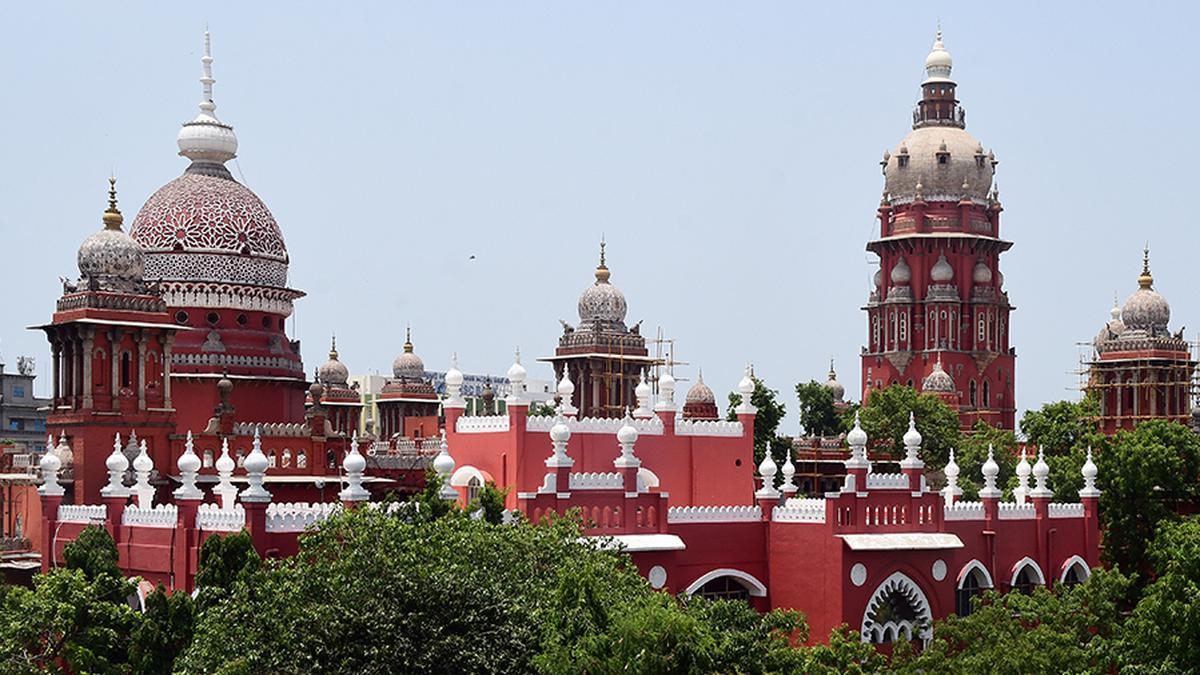
Unlawful Activities (Prevention) Act permits grant of bail to even foreign nationals in exceptional circumstances, says Madras High Court
The Hindu
Madras High Court allows appeal, sets aside special court's order cancelling bail granted to accused of attempting to establish Islamic rule in India.
A special court for National Investigation Agency (NIA) cases cannot cancel bail granted to a person, accused of attempting to establish Islamic rule in India through unlawful means, just because he was subsequently suspected to be a Sri Lankan national, the Madras High Court has held.
A Division Bench of Justices S.S. Sundar and Sunder Mohan allowed an appeal and set aside a bail cancellation order passed by the special court which had observed that Section 43D(7) of the Unlawful Activities (Prevention) Act (UAPA) of 1967 does not permit grant of bail to a foreigner.
However, the Bench pointed out that Section 43D(7) states that no bail should be granted to a person accused of an offence punishable under UAPA if he was not an Indian citizen and had entered the country unauthorisedly or illegally except in exceptional circumstances and for reasons to be recorded in writing.
Therefore, “it is not as if that there is no discretion given to the court. The court can grant bail even to a person who is not a citizen under extraordinary circumstances,” the Bench said and pointed out that in the instant case the appellant Mohamed Rifas alias Mohamed Rigbas was only suspected to be a foreign national.
The appellant’s counsel I. Abdul Basith brought it to the notice of the Bench that his client was arrested by the Keelakarai police in April 2018 for offences under the UAPA, Indian Penal Code as well as the Arms Act, 1959 and was granted bail in July 2018. Subsequently, the NIA took over the investigation in 2019.
After completion of investigation, a charge sheet was filed in 2021. Thereafter, in 2022, the NIA sought cancellation of bail citing another FIR registered against the appellant by the Keelakarai police in November 2019 under the Foreigners Act of 1946, the Passport Act of 1967 and the Citizenship Act of 1955.
The investigating agency claimed that the appellant had suppressed his nationality while obtaining bail in July 2018 and therefore the relief granted to him must be cancelled. The special court accepted the submission and cancelled the July 5, 2018 bail order on July 22, 2022.

Unfurling the zine handed to us at the start of the walk, we use brightly-coloured markers to draw squiggly cables across the page, starting from a sepia-toned vintage photograph of the telegraph office. Iz, who goes by the pronouns they/them, explains, “This building is still standing, though it shut down in 2013,” they say, pointing out that telegraphy, which started in Bengaluru in 1854, was an instrument of colonial power and control. “The British colonised lands via telegraph cables, something known as the All Red Line.”

The festival in Bengaluru is happening at various locations, including ATREE in Jakkur, Bangalore Creative Circus in Yeshwantpur, Courtyard Koota in Kengeri, and Medai the Stage in Koramangala. The festival will also take place in various cities across Karnataka including Tumakuru, Ramanagara, Mandya, Kolar, Chikkaballapura, Hassan, Chitradurga, Davangere, Chamarajanagar and Mysuru.









